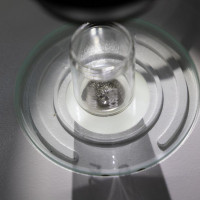- Sunday, 24 August 2025
Workaholism Takes Its Toll On Health
Everybody has to work, hence it is no longer just a necessity. It develops our identity, image, a measure of worth, and oftentimes, an addiction. You will celebrate once your task is complete before the deadline, but when commitment crosses into impulse, it transmutes into workaholism. Workaholism is the inability to stop, a constant wish to remain busy, and a mindset where productivity turns to self-esteem. Oftentimes, your family, society, and even country may admire workaholics for their tireless dedication, but in fact, this lifestyle carries a heavy price on health and well-being.
Workaholics do not love their job. We are all passionate about our careers, but we try to maintain a healthy work-life balance. However, a workaholic struggles to disconnect from work and feels anxious, remorseful, or awkward when not working. The condition is driven by external pressures such as competitive workplaces, societal expectations, and financial demands, as well as internal factors like perfectionism, fear of failure, or unresolved insecurities.
“Remain on” culture
The digital era has exacerbated this problem. With the advent of smartphones, laptops, and remote work, the margin between professional and personal life is blurred. “Remain on” culture normalises answering emails at midnight and spending weekends preparing reports. Over time, what begins as dedication turns into dependency, with severe consequences on all aspects of a healthy life.
It often causes burnout. Continuous work without optimum rest drains emotional and physical energy. Burnout manifests certain symptoms. People with workaholic behaviour often experience performance anxiety, constant worry about meeting expectations, and a lingering sense of inadequacy. These stresses can lead to depression and late-night work sessions, and an urge to complete tasks before deadlines disrupt circadian rhythms, which leads to insomnia and poor-quality sleep.
Please note that workaholism takes its toll on physical health, particularly on vascular health. Numerous studies have proven that it increases the risk of high blood pressure, heart disease, and stroke. Stress hormones like cortisol remain elevated, damaging vascular health. Again, it may weaken immunity. It affects the immune system, making workaholics more vulnerable to infections and slowing recovery. A lack of physical activity leads to neck stiffness, back pain, and ultimately joint problems. Poor diet, lack of exercise, and reliance on caffeine or alcohol to stay functional contribute to obesity, diabetes, and digestive problems.
Workaholism damages more than just individual health. Workaholics may neglect family, friendships, and personal interests, and over time, this isolation deepens emotional distress, creating a vicious cycle. Paradoxically, workaholism is often admired. Moreover, success achieved at the cost of health and relationships is a fragile success. It takes away individuals ' joy, creativity, and lifelong fulfilment, and unlike other addictions, society seldom warns against it, making workaholism a silent and socially accepted epidemic.
The good news is that workaholism, although harmful, is reversible. With conscious effort, individuals can break the cycle and create healthier work-life crescendos. What are those remedies then? The first step is to recognize workaholism. Hence, self-reflection is essential. Do I feel guilty when not working? Do I neglect health, family, or hobbies for work? Is my self-worth tied to productivity? If the answer is YES, that may indicate workaholic tendencies. Accepting the problem allows for change.
Establishing clear boundaries between work and personal life is vital. Therefore, it is necessary to fix working hours and stick to them. Avoid answering emails or calls beyond those hours except for professionals working in a 24/7/365 system like a poison centre in developing countries like Nepal, where there is a limited number of clinical/medical toxicologists or pharmacists trained in this super specialized field, for example.
It is necessary to keep work confined to a specific space. For example, working from bed or dining tables blurs personal and professional boundaries. Therefore, it is necessary to turn off notifications after hours and allocate “no-screen” times, but there are always exceptions. Always prioritise your health by taking precedence over work. Simple but consistent practices make a lot of difference.
At least 30 minutes of activity daily helps manage stress and improve physical resilience. Always try to avoid fast food and energy drinks and eat wholesome meals to fuel the body and mind. Try to develop sleep hygiene habits such as fixed sleep times, reduced screen exposure, and a calming pre-bed routine. Mindfulness, meditation, and breathing exercises reduce anxiety. Similarly, yoga, nature walks, and journaling also provide healthy outlets for stress.
True achievement
Mild cases are self-limiting; however, in severe cases, counselling or therapy may be needed. Workaholism is not just an individual issue; organisations, especially those providing 24-hour services, also play a role. Workaholism is just like a thief. It takes away health, joy, and time that can never be regained. Of course, work is important. It provides security, identity, and fulfilment. But it should remain a part of life, not consume the whole of you, and cause harm. As an example, our body needs rest after exercise, and our minds need rest after work. Taking a break is not laziness; it is self-preservation.
In conclusion, workaholism is a today’s epidemic that is exacerbated by ambition, insecurity, and societal glorification. Of course, it may provisionally enhance productivity, but its long-term consequences are devastating, particularly on physical health, mental stability, personal relationships, and overall well-being. True achievement is not in endless labour but in creating a life where work, health, and happiness coexist in harmony. When we look back on our lives, it will not be the late-night emails or endless meetings we cherish, but the moments of love, compassion, laughter, and, of course, peace. Work is important, but living your full life is paramount.
(Dr. Lohani is the executive director at the Health Concern. lohanis@gmail.com)

















